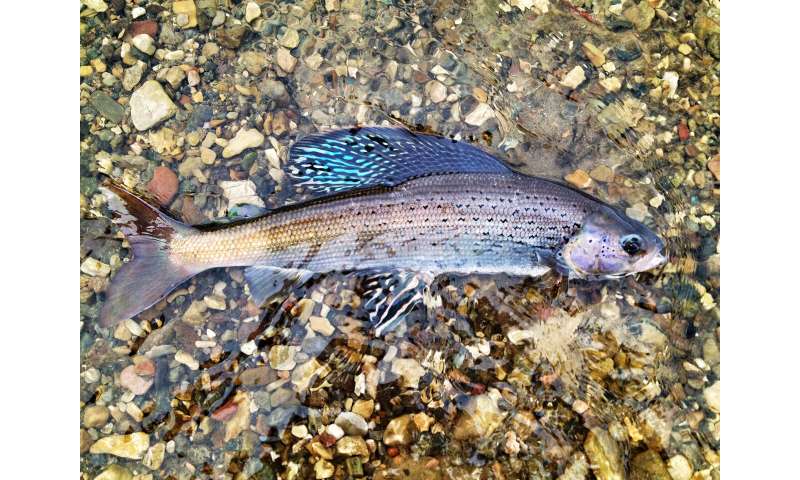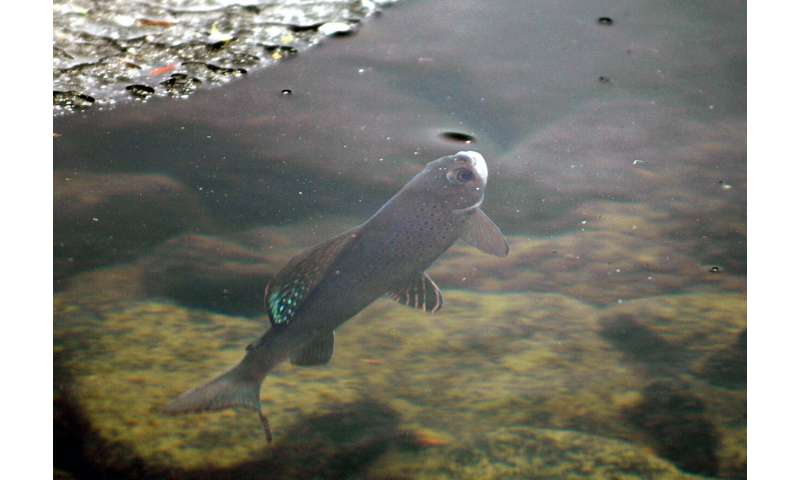#US wildlife agency rejects protections for rare fish species
“#US wildlife agency rejects protections for rare fish species”

U.S. wildlife officials on Wednesday plan to reject special protections for a rare, freshwater fish species that’s been at the center of a long-running legal dispute.
The Associated Press obtained details of the decision not to protect Arctic grayling under the Endangered Species Act in advance of a planned public announcement later in the day.
The move comes almost two years after a federal appeals court faulted the U.S. Fish and Wildlife Service for arbitrarily dismissing the threat that climate change and other pressures pose to the species.
Known for their iridescent appearance and sail-shaped dorsal fins, Arctic grayling can reach 30 inches (76 centimeters) in length and are prized by many anglers.
Officials credited a conservation agreement involving landowners and government agencies for recent improvements to the grayling’s river habitat in southwestern Montana’s Big Hole Valley.
The Big Hole River—home to one of the few native populations of the fish in the Lower 48 states—saw grayling numbers roughly double during the last decade to about 1,500 adult fish, said Fish and Wildlife Service biologist Jim Boyd.
“If you can increase the number of breeding individuals, you can start to feel really good about the conservation efforts and know they are truly working,” he said.

Despite the habitat improvements in recent years, Arctic grayling occupy only a fraction of the streams across the upper Missouri River basin where they were historically widespread. The species declined over the past century because of competition from non-native fish and after their habitat was significantly altered by dams and high summer water temperatures.
Efforts to protect Arctic grayling date to 1991, when wildlife advocates petitioned the government to add the fish to its list of threatened and endangered species. Officials determined in 1994 and again in 2004 that protections were needed. But they were never imposed because other species were given a higher priority.
The Fish and Wildlife Service in 2014 determined that protections were no longer needed because the landowner conservation agreement had helped the fish rebound. Conservation groups sued in federal court and prevailed when the case reached the 9th U.S. Circuit Court of Appeals in 2018.
The appeals court faulted the government for not taking into account data that showed the fish’s population in the Big Hole River was declining and for dismissing the potential for climate change to cause lower water flows and warmer temperatures.
Attorney Jenny Harbine, with the Earthjustice environmental law firm that represented wildlife advocates in the lawsuit, said the worsening climate crisis leaves the grayling’s survival in doubt.
“The commitment of landowners along the Big Hole River is commendable and absolutely essential for the survival of grayling. We question whether it’s enough,” Harbine said.
Arctic grayling are native to river drainages around the Arctic Ocean, Hudson Bay and the northern Pacific Ocean.
A population of grayling that historically inhabited parts of Michigan was wiped out last century, but scientists are seeking to reintroduce the fish to parts of the state.
© 2020 The Associated Press. All rights reserved. This material may not be published, broadcast, rewritten or redistributed without permission.
US wildlife agency rejects protections for rare fish species (2020, July 22)
retrieved 22 July 2020
from https://phys.org/news/2020-07-wildlife-agency-rare-fish-species.html
This document is subject to copyright. Apart from any fair dealing for the purpose of private study or research, no
part may be reproduced without the written permission. The content is provided for information purposes only.
If you want to read more Like this articles, you can visit our Science category.
if you want to watch Movies or Tv Shows go to Dizi.BuradaBiliyorum.Com for forums sites go to Forum.BuradaBiliyorum.Com




